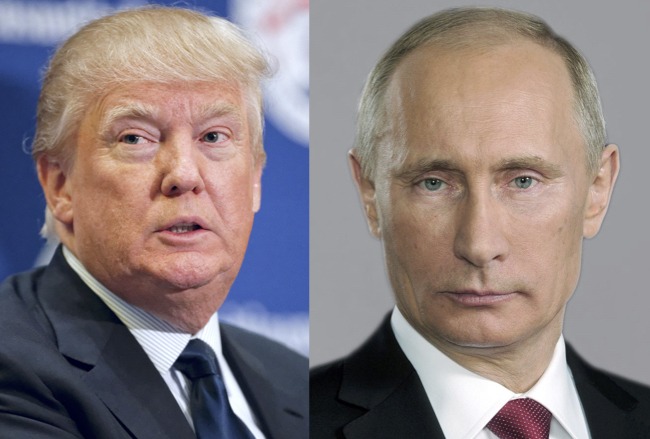Donald Trump and Russia: follow the money laundering

So I heard from Russian oligarch Dmitry Rybolovlev today through his spokesman. It was a surreal moment considering how much of a ghost-like figure he’s been throughout the Trump-Russia saga, popping up in strange times and places, never speaking. He only wished to cordially emphasize one point to me: that his 9.9% ownership stake in Bank of Cyprus was largely wiped out by the 2013 bailout. I got to thinking about why this point was important to him. And it made me realize that whoever is or is not involved, Trump-Russia is all going to come down to money laundering.
In a legal sense it doesn’t matter if Rybolovlev massively overpaid for Donald Trump’s house, or if he flew halfway around the world to meet up with Trump in various cities during or after the election. Those actions aren’t crimes, unless they’re part of something else. Deutsche Bank was recently caught laundering billions of dollars in Russian money through Bank of Cyprus into the hands of clients in places like New York City (source: CNN). Now that’s a crime. Pair it up with Deutsche Bank’s strange penchant for loaning large amounts of money to New York City resident Donald Trump (source: The Guardian), and you realize that these two things are either a really fascinating coincidence, or this is the most politically relevant money laundering scandal of all time.
No wonder Rybolovlev wants to emphasize that his association with Bank of Cyprus essentially ended four years ago; he’s trying to signal that he had nothing to do with this money laundering mess. The same benefit of the doubt can not be said of Wilbur Ross, who became Vice Chairman of Bank of Cyprus in 2014, and continued to hold that position until he resigned last month (link) – so he could become Donald Trump’s Secretary of Commerce. Ross isn’t going to be easily able to explain this away, and he’s not the only one still holding the Bank of Cyprus hot potato.
Donald Trump’s campaign chairman Paul Manafort was allegedly laundering tens of millions of dollars in payments from a Kremlin intermediary through that same Bank of Cyprus. If that’s provable, then Manafort is in huge legal trouble; he’d have to flip on Trump in order to avoid spending most of the rest of his life in prison. And whether Manafort flips or not, it feels like the shortest path for Trump going down on criminal activity is if it can be proven that the money Deutsche Bank was loaning to him was being laundered from Russia through Bank of Cyprus, and he knew it. That’s the kind of tangible, traceable crime that’s more easily proven than the subjective charge of conspiring with a foreign government to subvert the election process.
Trump will have one heck of a time explaining why he added the then-sitting Vice Chairman of the Bank of Cyprus to his own cabinet, if he had no involvement with Bank of Cyprus of himself. Is it feasible to believe that Wilbur Ross didn’t know about the money laundering going on in his bank? Will Ross have to flip on Trump for leniency? And why did Trump try to meet with alleged Russian mafia money laundering kingpin Alexander Torshin in February? (link). If the FBI can take down Donald Trump for money laundering, it won’t have to definitively prove an election rigging conspiracy to take him down; he’ll already be finished. Contribute to Palmer Report
